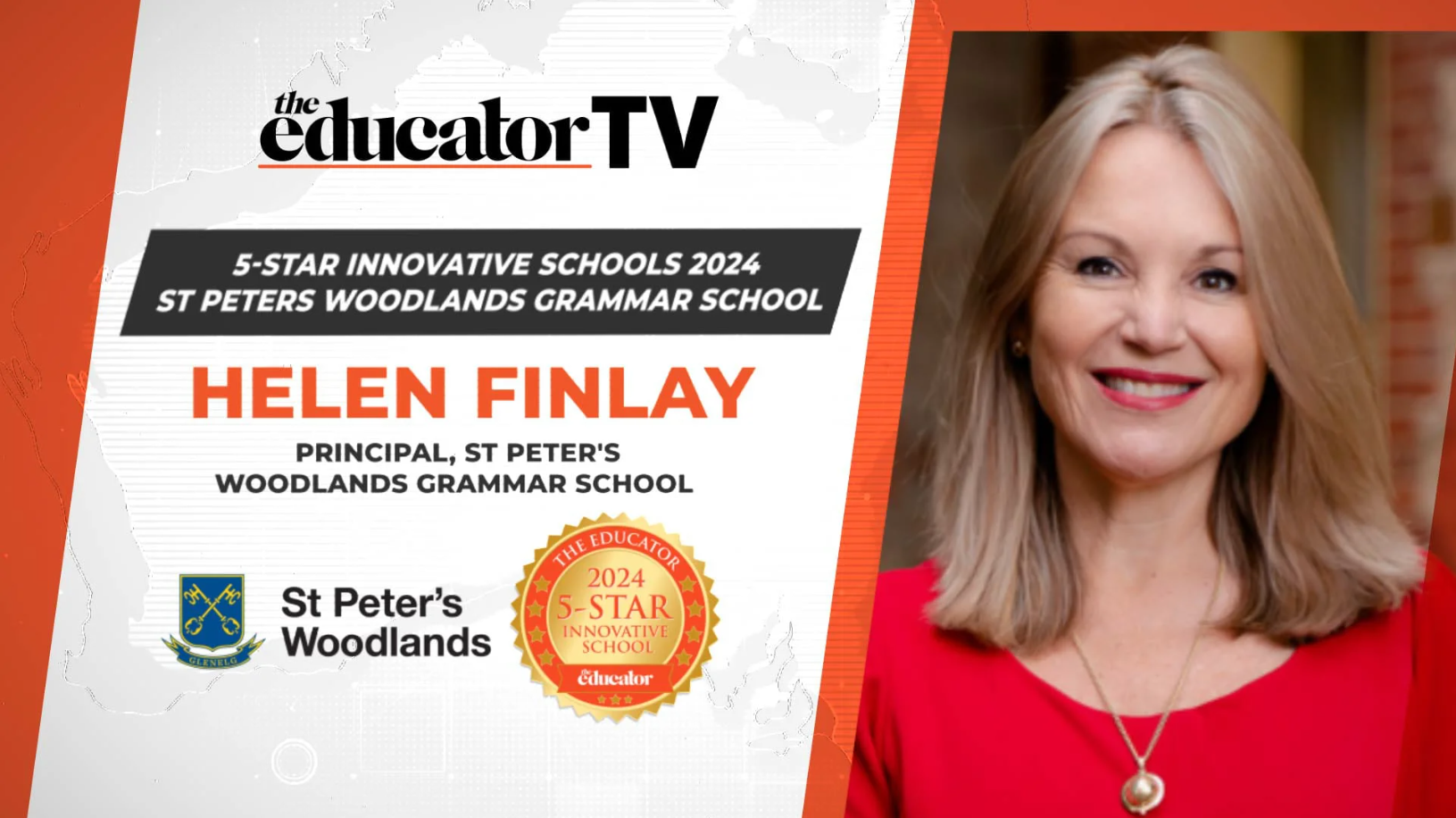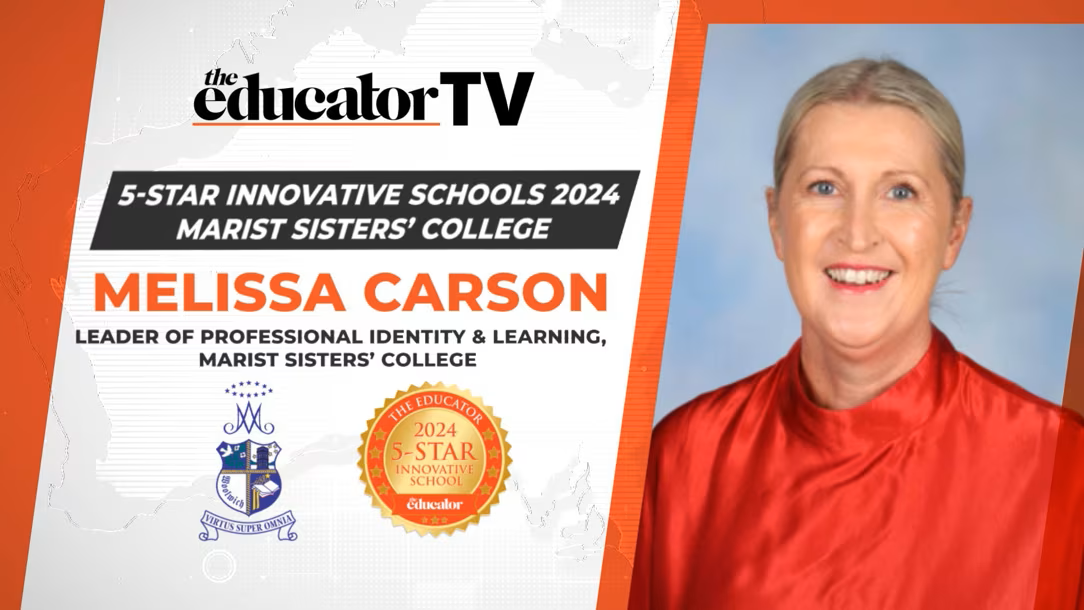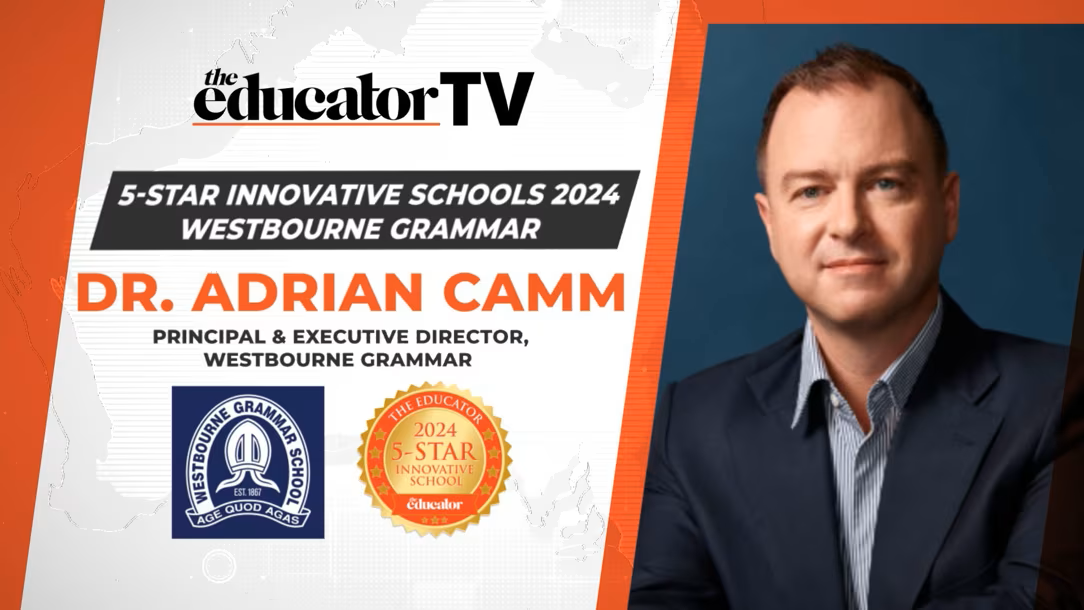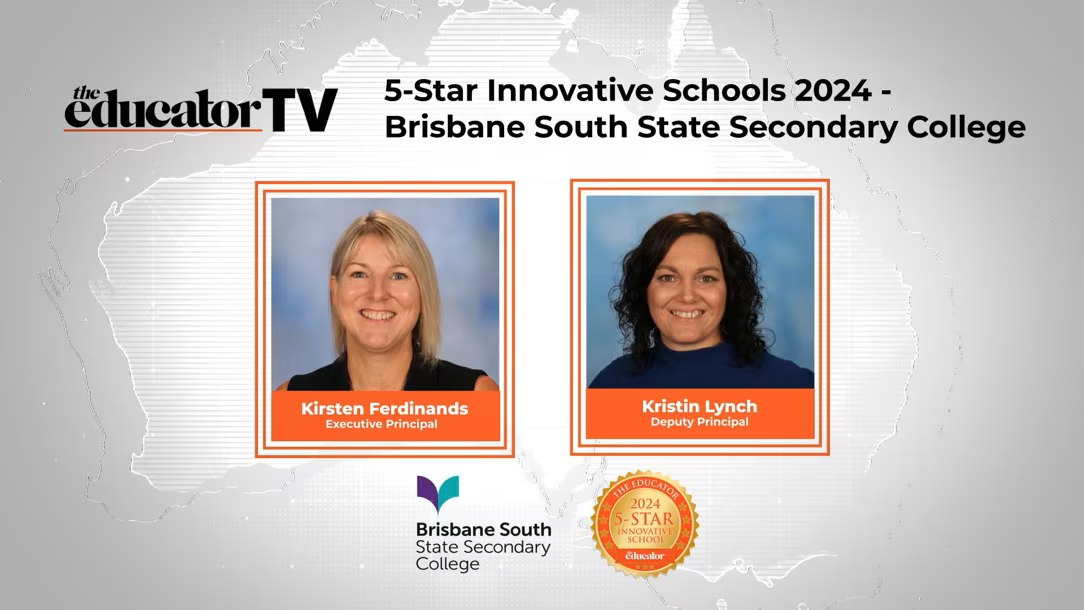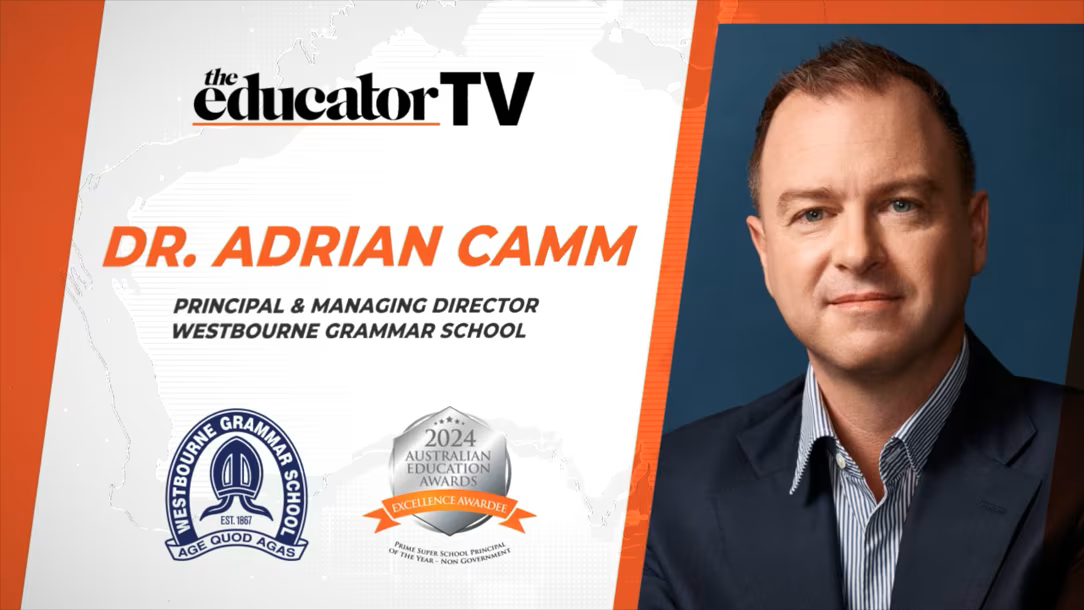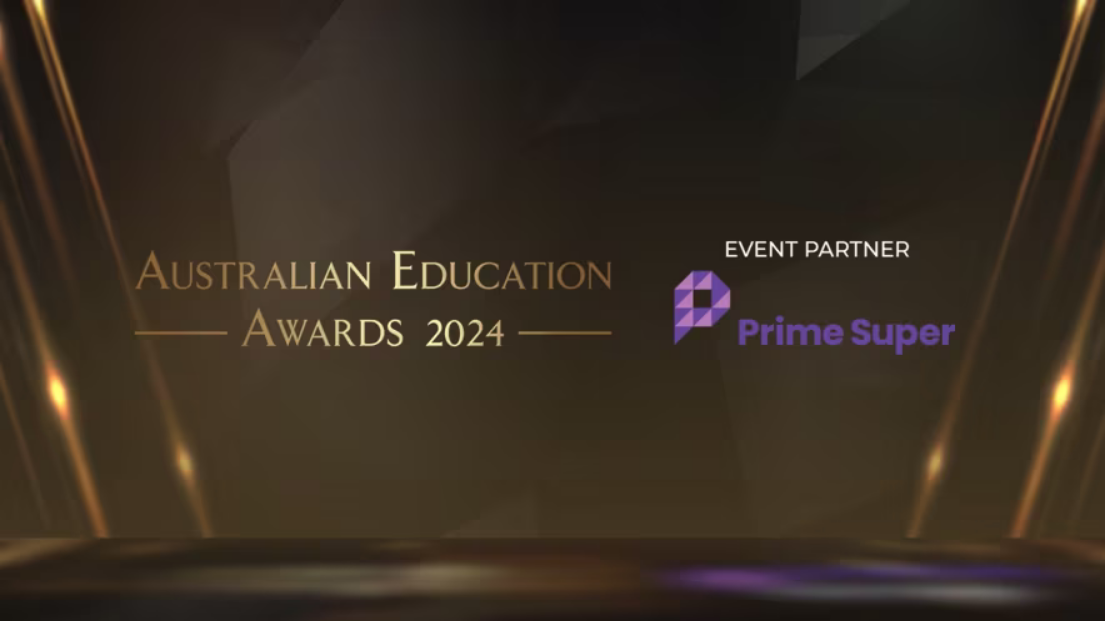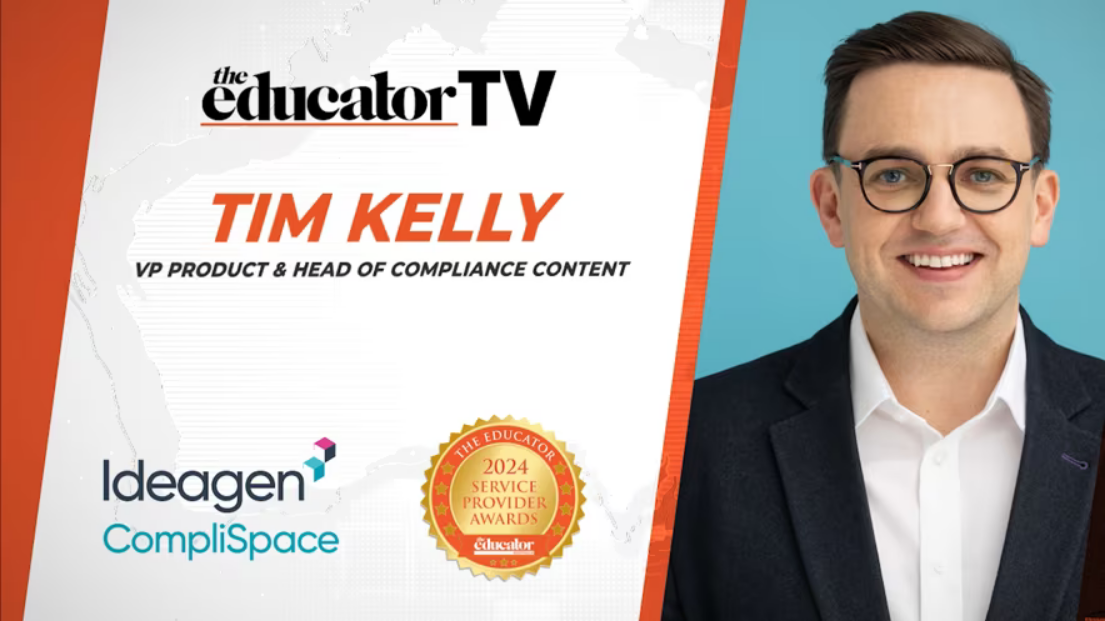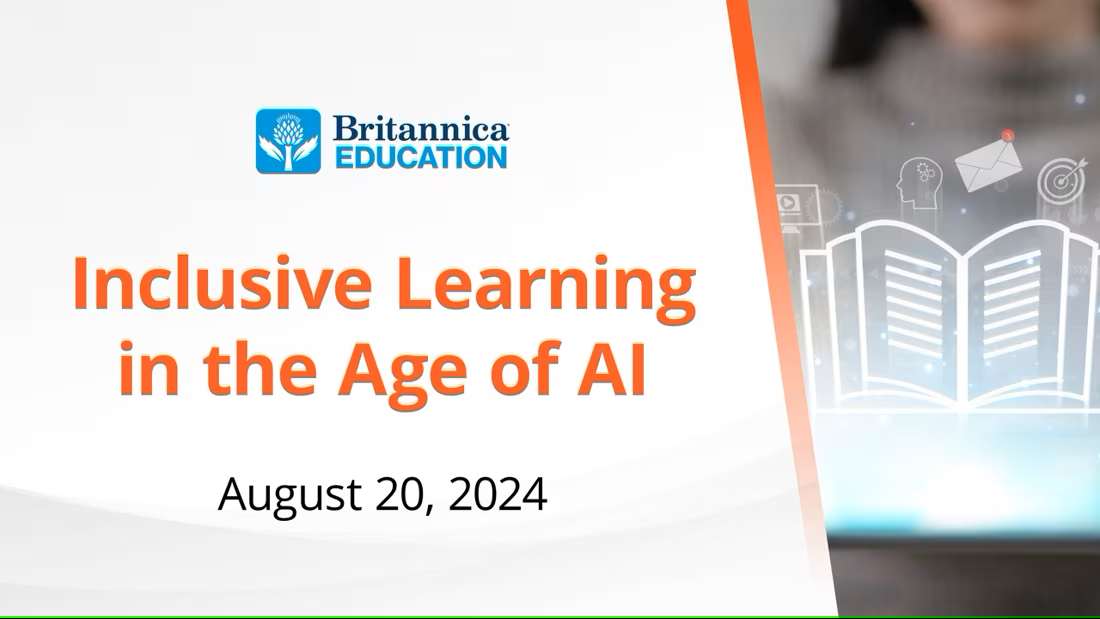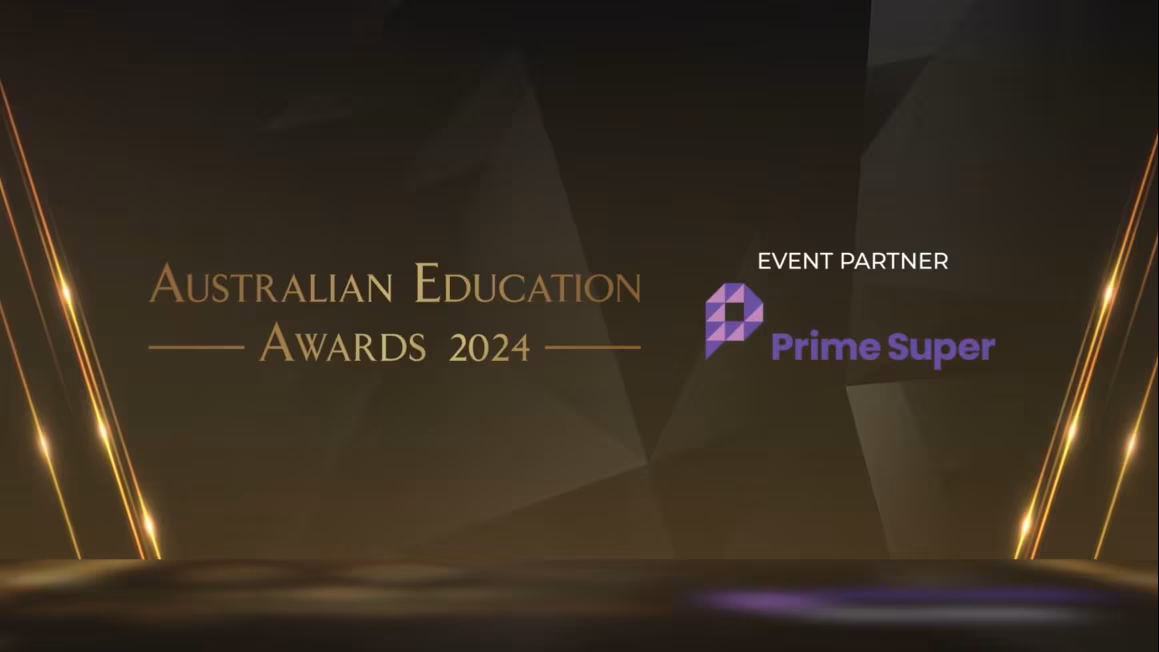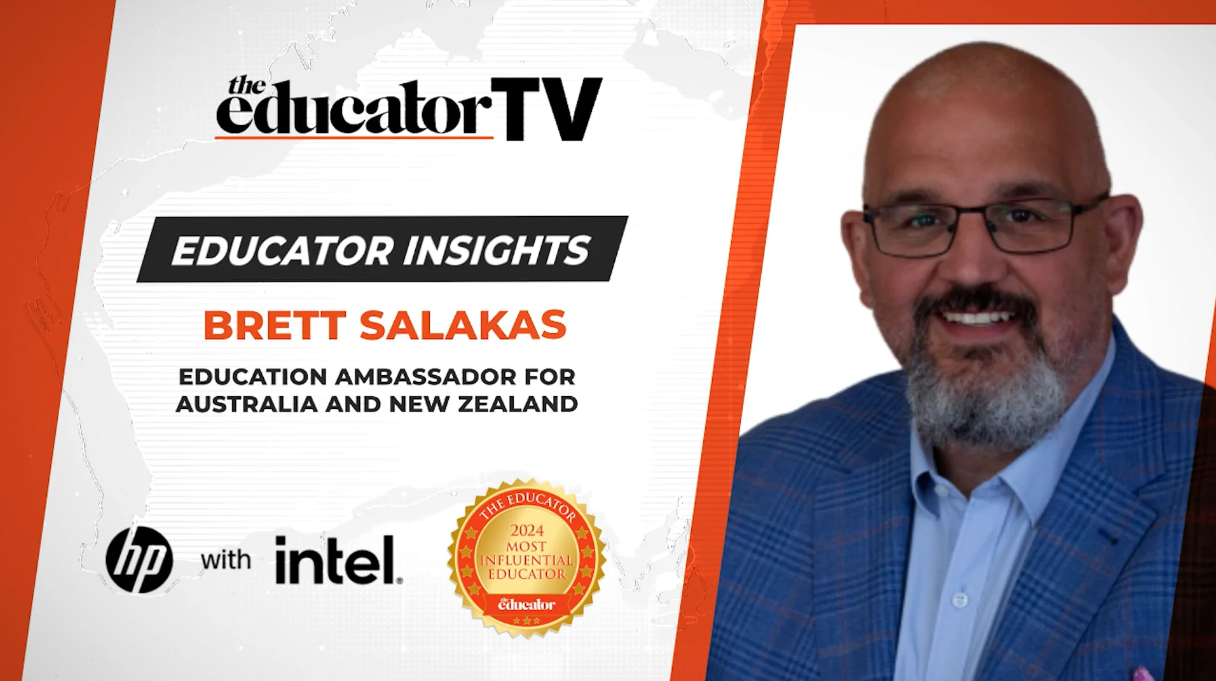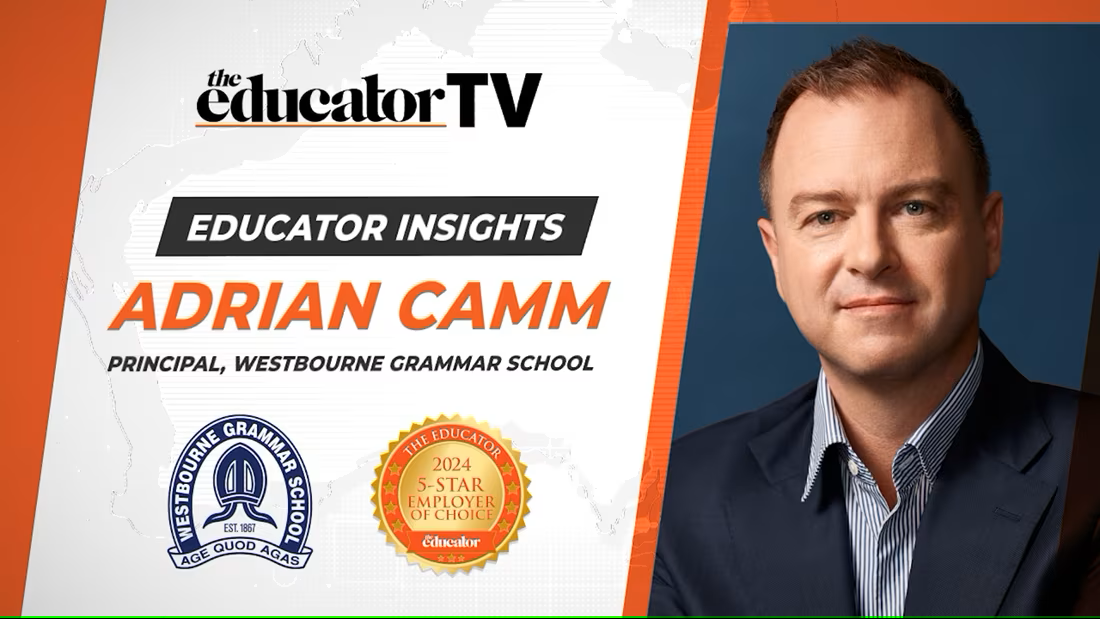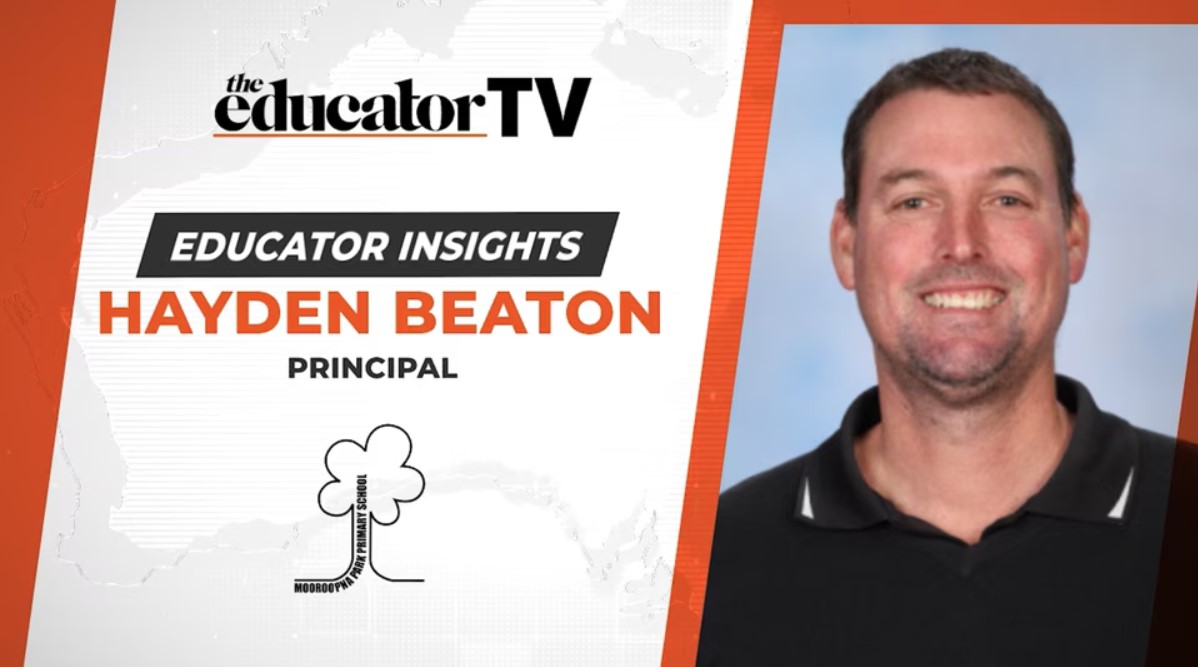Shaping global citizens in a local community
In this video, Principal David Adamson shares with The Educator his holistic approach to education at Essendon Keilor College, focusing on personalized pathways, student well-being, and embracing technology for a future-ready curriculum.
To view full transcript, please click here
Kylie Speer [00:00:08] Hello and welcome to The Educator TV. I'm Kylie Speer and we're delighted that you can join us for the latest installment of Educator Insights our inspirational education leadership series. Joining me today is David Adamson Principal at Essendon Keilor College. David is in his 16th year as College Principal after having been a Leading Teacher and Assistant Campus Principal since the formation of the college in 1993. David represents Victorian Principals on a number of department of education committees, and is also the President of the Multicampus Association, which represents principals and business managers from multicampus schools in Victoria. Welcome to you, David. And thank you so much for joining us.
David Adamson [00:01:00] My pleasure. My pleasure. Happy to happy to be here talking to you. And thank you for that bio. It sounds like a lot of things over my time, doesn't it?
Kylie Speer [00:01:09] Well, firstly, David, can you tell us a little more about Essendon Keilor College, your education programs and how many students the school educates.
David Adamson [00:01:18] Okay, as you said the school was formed in 1993, when five schools merged to form a three campus school. So we have to use seven to nine campuses, and senior campus has 10, 11 and 12. Studying there at the moment. We like that profile, because it means that we can have specialized campuses for those age groups, seven, nine campuses are able to really focus on what's important for that those middle years of education, they come in at year seven, and finish year nine, and then they move on to the senior campus and the senior campus to go and the programs or specialist programs for that age group. The campus is a bit more of a young adult learning environment, because they're older students. And so it's not only about the academic programs, but also about preparing students for life after school. And most of our students move on to further education, certificate number get apprenticeships and other things. But probably 85% of our students go on to tertiary education. We have a number of specialist programs with the changes in Victoria, what used to be called VCAL has now become VCE vocational major. And so we've got a number of students who are doing those programs. And one of them is a Specialist Program in Sport and Recreation. And with football, basketball, netball, so looking at careers in that sporting industry. And another strong year for us is the performing arts, which is also a high achieving program, along with all the academic programs at schools do so we try and cater for a whole range of students with different interests, you see the bell guy in the background there. So those students go into a whole range of pathways. And we like to think that what we're providing for is a diversity of programs for a range of kids different interests. So the student can find what they're really good at what they're passionate about what they love doing. And then we could find a way for them to go on to, you know, after school to that area. We also have a number of international students, we've got about nearly 50 international students studying with us at the moment, we had a few more before COVID. But with COVID, there are less coming, but we're certainly going to really strike the International Student Program. And we like that because it's a will a global focus for our students and so not only are they kids from the local area, but they're also meeting students from Vietnam and China or places like that, and talking about common interests for them. So we really like it. So the international focus for our students.
Kylie Speer [00:03:39] In your role, and Korea as principal, what are you most passionate about?
David Adamson [00:03:45] Well it flows on from what I just said, what I'm really passionate about is getting every single student that comes through my school, the best opportunity they possibly can have to be successful. And I don't really care whether they want to be doctors or they want to be plumbers or they want to be football players or whatever they want to do. As long as they are the best they possibly can be that and look at some of the students who are most proud of us students who have come to us we've got disabilities. And we've been able to get them right through from year 7 to year 12. And have them come out the other end and be able to be productive members of the community doesn't show up in our data. It doesn't show up in year 12 data or the NAPLAN data. But it shows up in our destinations and where they go. And the sort of follow up that we get from kids come back in three or four years time and say thank you for the education we provided. And look where I am now and they're so proud of themselves. So we have those kids have a whole range of abilities and we try to cater for them as much as we possibly can to give them the best chance they possibly can have. I'm really passionate about that. And that's why I've done a job to sell on.
Kylie Speer [00:04:50] The education landscape in Australia is transforming rapidly what changes are you most affected by and how are you approaching their adoption?
David Adamson [00:05:01] Yeah, look, the big one is obviously technology. And it's from when I first started in this job 16 years ago, you mentioned technology was very, very different. And in fact, I can remember even before that, when I was, I used to be a careers teacher at one stage, and I had to put a gun, I wanted to buy a computer, because there was a whiz bang computer program coming out, I had to go and make a submission to the school castle to buy the first computer in the school, which was for career advice. And so, you know, we've come a very, very long way that change has been really rapid. So I think and now with AI, we can talk about a bit more, but certainly being able to cope with the demands that technology makes on us that, and certainly during COVID. You know, everybody now knows how to use Zoom. But before cab if we didn't. And so it's also about having not just dealing with the changes, but having our staff up to date with what's happening and having them feel comfortable with using the technology. Because I like the technology, it's really good. But there's obviously issues with how rapidly things are changing and keeping up to date, and managing all those things that happen outside of school. I think that's a big challenge too. With with 24/7 access to technology, things happen outside of school did have an impact in the school, the next day or later on, and we have to be able to deal big deal with that. And that's been a big change. The society is becoming encroaching on the school, like it never has before. And that's not necessarily a bad thing. But we certainly have to have strategies in place to deal with it.
Kylie Speer [00:06:33] Health and well being practices have never been as top of mind and vital as they are right now. How is Essendon kilo college approaching this area with your students?
David Adamson [00:06:46] That's a really good question, because it's become really apparent after COVID, obviously. So we've always had programs in place around respectful relationships with each other, about supporting each other about not bullying, anti bullying programs, and all those sorts of things. But what we're finding now is that students who would generally coping before have missed that two years of education, do the lock downs, and so haven't got the same level of maturity that they would have expected of them at their age group. So there's been some crucial age groups as well. So certainly, kids that were in grade six, during COVID, didn't have those normal sort of graduation programs and transitions to secondary school. And some of the students that were just even still getting now in year seven, there were a couple of years behind in their maturity. So those well being programs have to be a bit different to what we used to do. So you could assume that a kid coming to your seminar would be at a certain level of maturity. But now they're not. And so we've got to look a bit differently at how our programs are delivered. But also, then, I think if we because those programs are successful, that they quickly catch up. And so you've got to be on the ball the whole time to make sure that there are kids who are most likely to go fine. But because the change is so quick for them to catch up, there are some that are left behind. And so we've got to make sure they've got some safety nets in place for those students left behind. And I think the other thing is that takes us out unnecessarily skilled around some of those mental health issues that are now appearing. And so it's around giving them training as well. And helping them with their mental health because they went through COVID, too. So it's, you know, they've got a got to help them out as well. And so I think there's a lot of teachers event, challenges coming back after COVID. So and I think the other thing about mental health is, the more you talk about it, the bigger it gets, in a sense, because things that people might not have brought up before they feel comfortable and bring up. And so we're finding that we've got some services here, we had some funding to bring a mental health practitioner into the school, she's found that three days a week, but we actually have to pay, we pay for the other two days because the demand of her services are so great. So it's not only about providing professional learning for staff and putting programs in place for kids, but it's also having to find extra support, find, find the money to give the support that's needed, because there's a lot of things that are appearing now, and will continue for the next few years, at least until that postcode generation goes through. But then, of course, there are siblings who experienced seeing their older brothers and sisters go through these things, those mental health issues will still keep arising as well. And of course, the parents are still there. And the parents might have three or four siblings if the parents have got issues, mental health issues, then they'll still manifest themselves on the kids even if the kids don't have. It is really complex.
Kylie Speer [00:09:43] David, the subject of AI is an increasingly complex one. What are your thoughts on how to best work with this technology going forward?
David Adamson [00:09:53] Part of it is to embrace it, because certainly there are lots and lots of good things about AI. I think it's an interesting tool. All, especially in a sort of creative sense. But it's got to be balanced with, like the accountability around student work, and making sure that the work is actually the student's work. So we're gonna go old school on a few things and start doing paper and pencil tests and things again, so you can be clear that it's the students work. So it's about getting the balance, right. Look, there are other good reasons for going back to, you know, having kids actually write things down. Because a guidance COVID and technology, students handwriting is not great. A lot of cases. So there are some other reasons. But yes, I think you've got to look at entities again, it's one of those things, it's changing really rapidly. So I think what we have to do is look at what we can take from it that are positive, but put some safety nets in place or some processes in place to make sure that it's the students doing the work, because it doesn't serve them to be just copying stuff out of it, that doesn't help in their learning. So we've got to find a ways and that's the most obvious one that we do our assessments the old way. If you have to write something, we'll do a multiple choice, tick the box type thing. So there's, they're actually we're actually testing their knowledge. So that we can be clear about their assessments, but then that's the end product, you've got to also then look at what you're teaching you how you're teaching it. So that the teachers are aware, because obviously, when I would teach it, in the classroom, I walk around the room, and I see what the students are doing. So if they've got their computers open, it's a little bit harder to know, are they pitching something from AI, or is their own work? So we've got to look at not just the end product, which is the assessment, but also the way we teach, and how we monitor what the students are doing in the classroom. Because we don't want it's not gonna go away. You know, it's like the mobile phones not gonna go away. So we've got to work out a way to incorporate them into what we're doing in a positive way.
Kylie Speer [00:11:52] How can teachers and principals be better supported by relevant stakeholders to ensure you're adequately equipped to do your job?
David Adamson [00:12:01] There's two parts to that, How can we be supportive? The first thing is stop making us do so much education, and there's always a panacea of every problem in society than if you've got violence in the streets, or you've got drug problems, or you've got mental health issues. The school and rightly so schools are expected to do something about that, that's part of our role is to support people educate them. You know, vaping is another good one. Now, what are you doing about vaping. So there's all those things that are happening that we keep being told, Well, you've got to have a program in your school to help that. So that's so one thing is to sort of ease off a bit on what schools are expected to do and try and prioritize stuff. The purpose of education ministers have lots of really good ideas that they want to happen straightaway, you know, because they've got an election cycle to go through. And so stuff gets piled on and piled on and piled on. And certainly, there's supports there. And I'm not being too critical of each case departments, because they do provide professional learning when there's when there's a new initiative. But professional learning is not the only solution. And that's just more work as well, you know, you've got to go along with a professional learning session, that means you're leaving work higher for your kids and catch up and all those sorts of things. So part of it is being for the Department of Education to prioritize what's important, and be aware that you just can't keep piling things on to schools and teachers, especially when as a teacher shortage, and workloads an issue. And when you do provide this, what make sure it's really, really good support. And that includes financial support. But also make sure that the support you provide is actually quality support, and the sort of thing that teachers want to go to because teachers are pretty clear when something's not much good. So it's about providing those strategies, but doing it in a rational way and saying, Okay, we've got 10 things we want to do, we can't do them all at once, what's the most important thing, listed the first two or three properly, and then work our way through the list? And don't expect us to do everything all at once?
Kylie Speer [00:14:01] And finally, what's your number one piece of advice right now to affect positive change in education?
David Adamson [00:14:09] I think it is that there is a significant issue around funding. You hear you quite often hear that there's more money being spent education, but our PISA results are up to scratch, you know, we're going backwards compared to other countries, and all that sort of thing. And that's a legitimate concern, because we do want to see our students do as well as they possibly can. And will that be political about it? I think the funding isn't being allocated where it's needed all the time. There are significant areas of need across the country and Aboriginal education is one education of students with disabilities, education of students who come from poor socio economic backgrounds, the money is not necessarily going where it's most needed. So I think, and I know that the federal government's doing a review of school funding currently. And so my big, big message right now is, if you look at all the problems, we've got to shortages problems with literacy numeracy not doing well. It's not just national tests. But spending lots of money. Is the money being spent as best as possible can be? Is it going where it's needed? And when it goes there, is it being spent effectively. And that would be my query it how do we how do we judge that? And how do we evaluate that so that we know that the taxpayers money is being you know, we're getting our best bang for our buck sort of thing. So that would be my biggest takeaway from this at the moment.
Kylie Speer [00:15:30] Well, thank you so much, once again, for your time today, David, it was lovely speaking with you.
David Adamson [00:15:36] That's my pleasure, Kylie, I'm happy to talk to you and I hope that people who watch this program actually get something out of it.
Kylie Speer [00:15:42] And thank you, of course, to our viewers for watching the latest episode of Educator Insights. We look forward to seeing you again soon.



